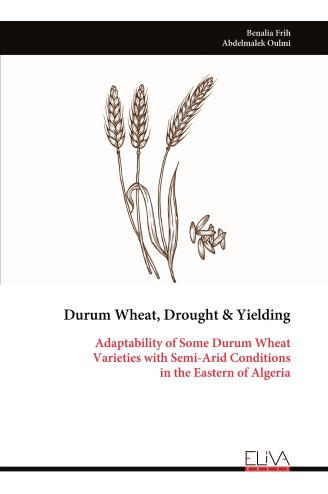Description
Leave review
Description
The aim of this study is to test the adaptability of seven (Triticum durum Desf.) genotypes growing under semi-arid condition. The experimentation was carried at the Agricultural Experimental Station of Setif (Algeria), in a design of random blocks with three replications. MBB and Boussellem genotypes were the most suitable genotype; they have a good ranking under both crop seasons according to their results for all traits studied. 2016/2017 was the best crop season; it recorded the best values of grain yield and major of traits studied. Correlation analysis showed that GMP is both an indicator of high performance under both conditions and of resistance to stress (r=0.56* in a stress state and r=0.82*** in a non-stress state) . Boussellem and Oum Rabie were the strongest in yield and the most adapted to water stress thanks to their values for this index (8.84 and 9.06 respectively). Two-way analysis of variance showed that the effect of sowing date was significant (P<0.001‒0.05) with the variables Above Ground Biomass BIO, Spike Weight SW, Thousand Kernels Weight TKW, Flag leaf area LA, Plant height PH, Number of Days to Heading DH and canopy Temperature CT, Ofanto is shown to be the most suitable genotype for the late sowing date (January). ANOVA showed that genotype effect and irragtion regime effect were highly and significantly on CT and CTD under both stressed and watred conditions. The interaction Genotype X irrigation rigime was significant for CT and CTD.




